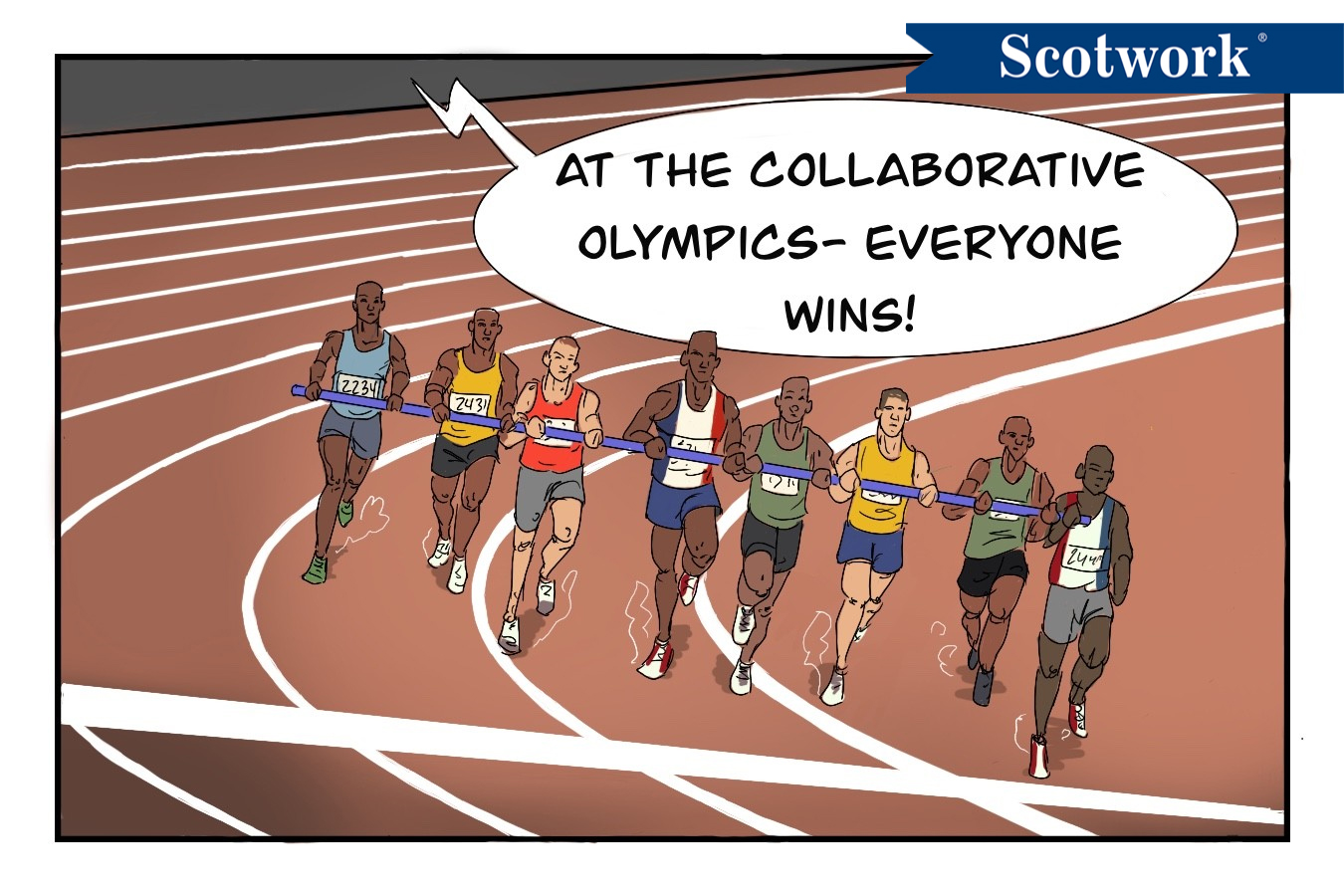I’m enthralled with the Olympics because I love watching the competition and learning about the athletes, not to mention the supporting players. I loved learning about Stephen Nedoroscik, the mild-mannered US Men’s Gymnastics pommel horse superhero, and Bob the Cap Catcher, whose job it is to retrieve swimmers’ caps from the bottom of the pool. I took special note of Australian swimmers Mollie O’Callaghan and Ariarne Titmus, who train in the same pool with the same coach — but never together. I can’t imagine many competitors training together.
As a negotiator, I’ve never prepared with the other side, even though I rarely think about the other side as a competitor. I approach most negotiations collaboratively. However, we can inadvertently make our negotiations competitive in an unproductive way if we’re not mindful of how we show up at the table and the language that we use.
I was listening to one of our negotiation experts, Julie Shen, explain to a group, “You can get a hint of how competitive a negotiation will be by whether the other side says they’re negotiating ‘with you’ or ‘against you.’”
It’s a great point. I know when I’m feeling pressure to get a deal done, or if I sense aggression from the other side, I describe it as ‘negotiating against’ them. Which means I’m likely in a more competitive posture. Alternatively, if I’m in a negotiation with little pressure or few expectations of the outcome, or if I have a good relationship with the other side, then I say I’m ‘negotiating with’ them. For these talks, I’m in a more collaborative posture.
I tend to avoid competitive negotiations because they usually devolve into a “win-lose” situation. Inevitably, if someone feels like they lost, they will expend lots of effort dismantling a deal instead of supporting it. My desire is to create deals that both parties find valuable and will support after the negotiation. Typically, these come more frequently through collaborative talks. It’s critically important that negotiators collaborate to create durable agreements.
Pulling on this thread further, there are other examples of language that can make a negotiation competitive versus collaborative:
- “I/Me” vs. “Us/We”: If one side pays attention only to themselves and their own needs, then they’re at risk of stoking the competitive fires. Using more inclusive language can create a more collaborative tone.
- “Price” vs. “Value”: In a negotiation, price is the easiest thing to attack, and it can turn otherwise collaborative talks into a competition. Focusing on value tends to speak to the merits of either side.
- “No” vs. “Yes”: It’s easy to say “no”; it’s much harder to say “yes.” In a negotiation, “no” can be a sign of defensiveness and a more competitive approach. Saying “yes” requires a more thoughtful approach — one that’s filled with curiosity and a desire to find a path to “yes.”
- Statements vs. Questions: Statements are about telling. Questions are about learning. More telling than learning usually leads to a competitive environment. More learning than telling typically leads to greater collaboration.
Our language has a profound influence on the kind of negotiation we’re in. In our negotiation classes, we teach people how to influence these behaviors, but it all starts with being self-aware and understanding how you might be creating a competitive disadvantage. Let’s leave the competition to the Olympic athletes, and we’ll continue to bring more collaboration to the negotiating table.
We Can Help You Increase Collaboration and Value
To get the most value with a “win-win,” rely on Scotwork. We’ve perfected collaborative negotiation over 50 years. Get in touch for the win-win!

